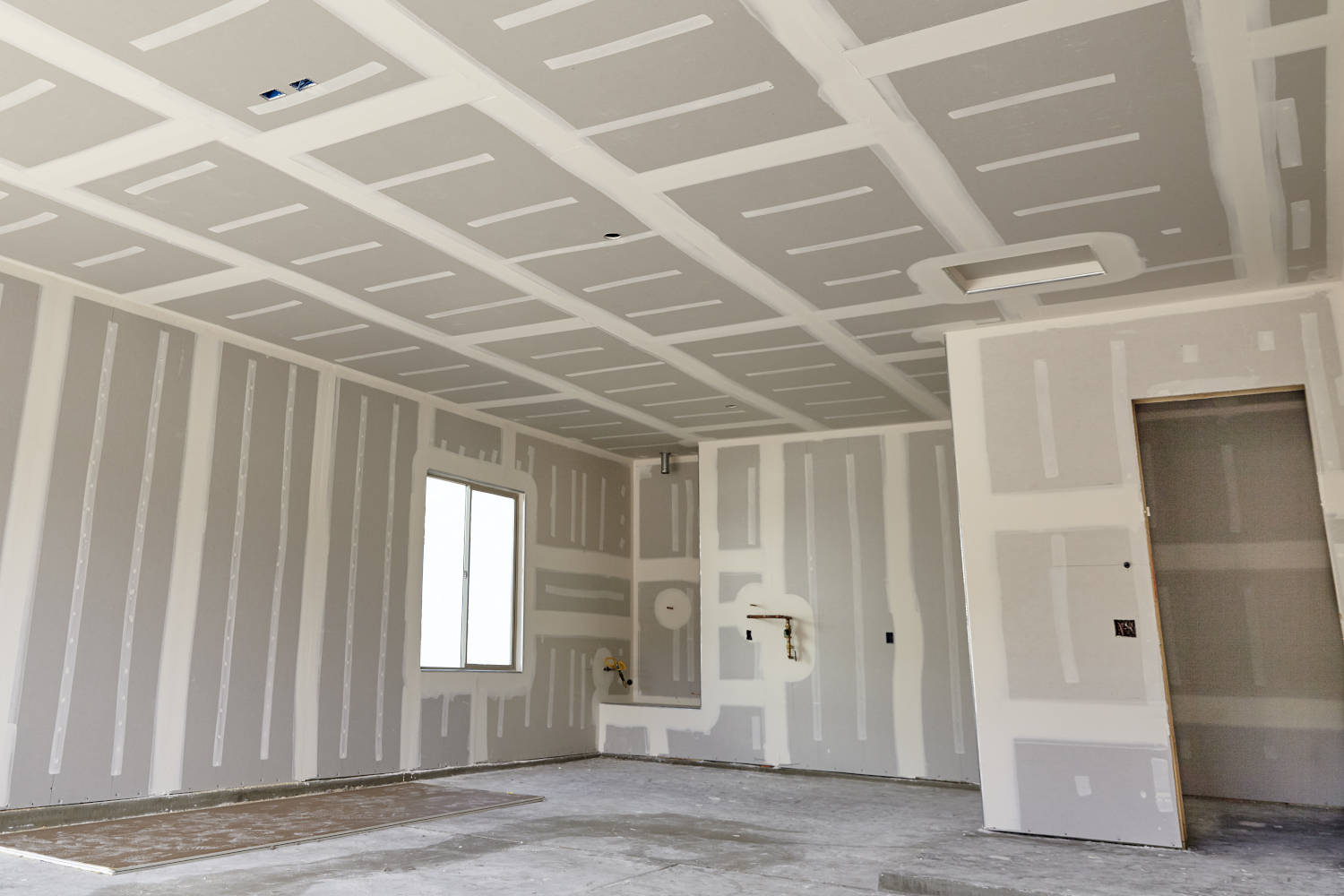Drywall Calculator
Ice Barrier Estimate:
sheets of 4' x 8' drywall:
drywall cost: $
Screwslbs of 1 1/4" screws:
Total Areasquare feet:
How to Calculate Drywall
Drywall, also referred to as Sheetrock or wall-board, is used to cover wall studs in modern
construction. Drywall creates the solid wall surfaces you see in your home.
It’s usually finished and painted after installation. When you’re completing a renovation or
construction project, you’ll likely need drywall to cover the studs or wall frame of the home.
There are a few ways to estimate the amount of drywall and materials you’ll need for the
project.
The first method is to use the drywall calculator above.
How to Estimate Drywall Without a Calculator
To estimate the amount of drywall needed for your project, you need to calculate the square
footage of the walls and ceilings that you’ll be sheetrocking.
Square footage of the walls is the length in feet times the width in feet of each wall. , Thus,
you can calculate square feet by multiplying the length times the width.

For example, to measure walls that have a vault, it will be easiest to determine the square
section and vault separately.
If you have doors, windows, or other areas where you won’t be installing drywall, find the
square footage of those areas and subtract it from the total square footage figure. This will
make your calculation more accurate and reduce excess materials and waste.
After you find the square footage of drywall needed, simply divide it by the square footage of
the sheet size you will be using to find the number of sheets needed.
How to Estimate Joint Compound and Tape
Estimating the amount of joint compound and drywall tape you need starts with finding the square
footage. Different joint compound or mud products have different coverage levels, so it’s best
to check the product you intend to use to verify the coverage.
If you’re using a lightweight joint compound (not premixed), then you’ll probably need 0.053
pounds of mud per square foot of drywall. If you’re using a quick-setting product, then you’ll
likely need 0.073 pounds of mud per square foot. Drywall tape typically covers about 2-3 square
feet of Sheetrock per foot of tape.
Likewise, when finishing the drywall, it may be given different textures. These textures may
change the amount of coverage that a compound could give you.